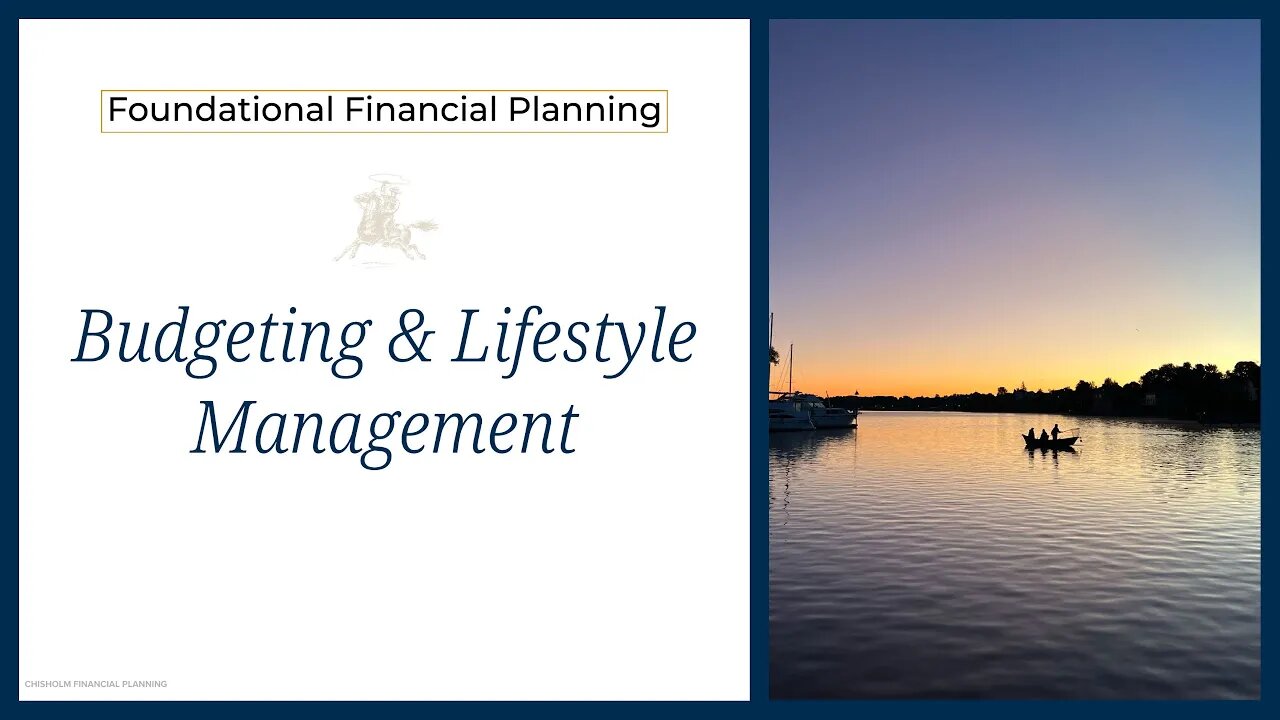Premium Only Content

Foundational Financial Planning - Budget & Lifestyle Management
Not knowing what your lifestyle costs cripples both your present and future. In the present, you are likely mindlessly paying bills as they come due and spending whatever money is available until your next paycheck. Even if you are not acquiring debt and “living within your means” you are not implementing a strategy to find more money to save, invest, leverage, or otherwise utilize to move you forward.
Equally as bad for your future, not understanding your lifestyle costs prevents you from effectively evaluating if you are saving enough for retirement. You must know—at the very least—your annual expenses to determine how much you need to save to sustain that spending level in retirement.
Where to Start
If you have never budgeted, step one is to go back and track your spending as accurately as possible. I recommend looking at your credit card and bank account statements, and piecing together the last 6 months of your spending. Categorize the expenses and compare what you spend each month in each category. There are several online tools that assist in gathering the data—even looking backwards. Our planning software for clients has this ability, and I know some who use Mint.com or Quicken with success.
Budgeting for Goals
Tracking and evaluating what you are spending is the first step to understanding where all your money is going. Next, you may need to find room in your spending for savings, debt repayment, or other goals. This is where a budget comes in. Looking at the categories of spending, evaluate if there are places you need to cut back so you can allocate those monies to your other financial goals.
Part of budgeting is going to require you to understand what financial goals you may need to be working towards. Perhaps you have student loan, consumer, or other debt that is not moving you forward. Or maybe you do not have an emergency fund or have not started saving for retirement. If you have neglected planning for these needs, you are not building a foundation for success and now is the time to review your budget and begin looking at where you can make cuts to begin tackling these other needs.
If You Need Help
There is a need for straightforward advice on the basics of financial planning. Seeing this need, we have opened registration for our Foundational Financial Planning ecourse, launching April 3. This six-week course will go over one pillar of foundational financial planning each week. Once you have mastered these principals— you have mastered the basics giving you a firm fiscal foundation and can progress onto more complex financial goals such as buying real estate, starting a business, or planning to retire early.
It is vital that we each master the basics, building a solid foundation of which to create a long-term financial plan that moves us closer to freedom of our own lives and choices.
-
 7:47
7:47
Jenny Logan, CFP®
1 month ago7 Ways to Boost Your Retirement Savings
25 -
 1:19:47
1:19:47
Kim Iversen
3 hours agoIsrael Tried to Kill Hamas in Qatar — Here’s What Really Happened
21.9K55 -
 1:01:38
1:01:38
TheCrucible
3 hours agoThe Extravaganza! EP: 34 (9/09/25)
49.4K9 -
 LIVE
LIVE
Quite Frankly
5 hours ago3I/ATLAS Space Invasion & Other Strange Stories | Ryan Gable 9/9/25
376 watching -
 2:02:27
2:02:27
Redacted News
3 hours ago"This is an ACT OF WAR!" Israel Bombs Qatar - Middle East Descending into Chaos | Redacted
87.4K101 -
 53:14
53:14
Candace Show Podcast
3 hours agoBecoming Brigitte: The God Of Amiens.
37.9K72 -
 LIVE
LIVE
MattMorseTV
3 hours ago $5.00 earned🔴Trump’s Oval Office PROCLAMATION. 🔴
1,238 watching -
 0:31
0:31
Danny Rayes
1 day agoThis Company is Cooked 😨
3.37K1 -
 LIVE
LIVE
Wayne Allyn Root | WAR Zone
6 hours agoWAR Zone LIVE | 9 SEPTEMBER 2025
130 watching -
 1:14:54
1:14:54
vivafrei
4 hours agoCash for Criminals? Did Judge Wrongly Release Accused Murderer? Epstein Doc Release! Swalwell Sucks!
82.2K31